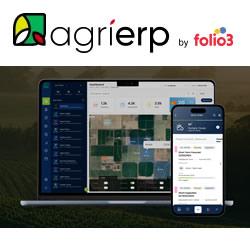BASF Venture Capital invests in Indian hydroponics pioneer UrbanKisaan
■ Startup optimizes sustainable agriculture without soil in tropical climates ■ BASF Venture Capital’s first investment in this early stage Indian business strengthens AgTech activities in Asia
Hyderabad, India, and Ludwigshafen, Germany, July 13, 2021 - BASF Venture Capital GmbH (BVC) is investing in the Indian startup UrbanKisaan, which specializes in hydroponic cultivation of various types of vegetables, greens and herbs in tropical urban environments. This is BVC's first investment in an early stage business focusing on India. Conceptualized in 2017, UrbanKisaan operates several suburban greenhouses and vertical indoor farms in Hyderabad and Bangalore. The company sells the fresh produce, some of which is grown directly in the shops, in its franchise-owned brick-and-mortar stores and via an app and website. Both parties agreed not to disclose financial details of the investment.
the farms ensures pesticide-free produce. The growing demand from our customers shows that our idea is well-received," he added.
UrbanKisaan's farms are managed through their proprietary technology. Nutrient content, pH levels, atmospheric humidity, CO2 concentration, light concentration and other important parameters are controlled and adapted to the needs of the particular plants with an app.
"UrbanKisaan, as a pioneer in the hydroponics space, has developed a unique growing method and combines this with a compelling business model for sales," commented Markus Solibieda, Managing Director of BASF Venture Capital GmbH. He added: "AgTech is one of our key investment focus areas worldwide. This includes, in particular, our goal of supporting innovative agricultural and food-related businesses in Asia. We look forward to learning more about hydroponic farming and exploring its potential through a close collaboration between UrbanKisaan and BASF's agriculture experts."
With the investment from BASF, UrbanKisaan plans to further expand its market presence in India, deploy its farming technology to work with thousands of farmers, and bring fresh, local, sustainable produce to urban dwellers.
Hydroponic farming - an efficient way to use limited resources
The world's population is expected to reach 10 billion by 2050 1 while the area available for farming and freshwater reserves are becoming increasingly scarce. Hydroponics offers a sustainable way to grow crops without soil and using vertically stacked layers while reducing water usage by about 90 percent 2. Especially in densely populated urban areas, this presents a more efficient way to use limited resources like water, space and manpower. Water that is not absorbed by the plants is captured, purified and fed back into the farm's water circulation system, minimizing wastage significantly.
India is the second-largest producer of fruits and vegetables in the world, with a production value of about $64 billion3. It is also a large consumer of fruits and vegetables, and while much of this is through unorganized channels (local vegetable markets, hand-pulled carts and neighborhood stores), organized channels (modern trade and online retail) account for a little over 20 percent of the market4. Thus, hydroponics is a fast growing and efficient alternative to traditional supply chains in the organized fresh produce market.
About UrbanKisaan
UrbanKisaan was conceptualized in 2017 in Hyderabad, India. The company began as a farming enterprise but wanted to grow more than just fresh and nutritious food. They wanted to create a sustainable future for farming and feed the world in a way that is good for both people and planet. Today, with its hyper-local urban farms the company is creating a transparent supply chain with a low carbon footprint, leveraging on proprietary growing technology that helps save 90% of water yet grow 30 times more crops compared to traditional farms of similar area. Further information at www.urbankisaan.com.
About BASF Venture Capital
At BASF, we create chemistry for a sustainable future. BASF Venture Capital GmbH (BVC) also contributes to this corporate purpose. Founded in 2001, BVC has offices in Europe, the U.S., China, India, Brazil, and Israel. BVC's goal is to generate new growth potential for current and future business areas of BASF by investing in young companies and funds. The focus of investment is on new materials, AgTech, Digitization and new, disruptive business models. Further information at www.basf-vc.com.
About BASF
At BASF, we create chemistry for a sustainable future. We combine economic success with environmental protection and social responsibility. More than 110,000 employees in the BASF Group contribute to the success of our customers in nearly all sectors and almost every country in the world. Our portfolio is organized into six segments: Chemicals, Materials, Industrial Solutions, Surface Technologies, Nutrition & Care and Agricultural Solutions. BASF generated sales of €59 billion in 2020. BASF shares are traded on the stock exchange in Frankfurt (BAS) and as American Depositary Receipts (BASFY) in the U.S. Further information at www.basf.com.
Featured Product

